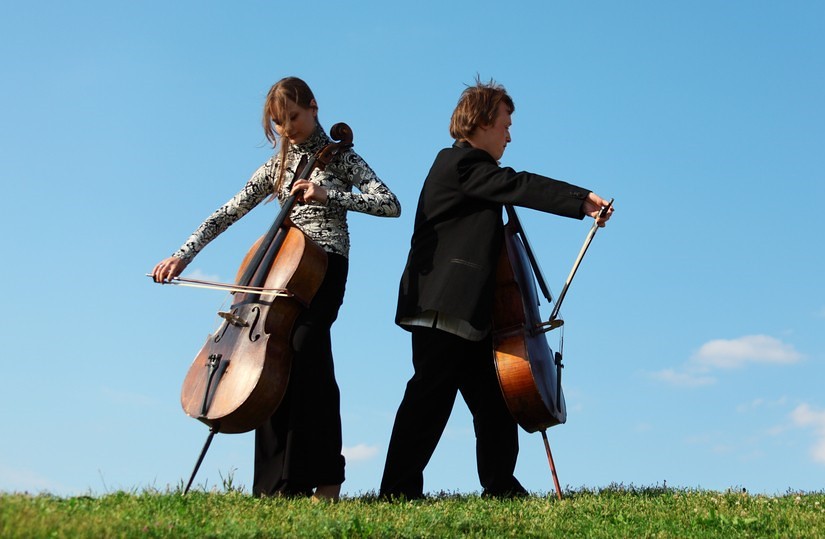 “Creative activity could be described as a type of learning process where the teacher and pupil are located in the same individual.”
“Creative activity could be described as a type of learning process where the teacher and pupil are located in the same individual.”
–Arthur Koestler, author
(Drinkers of Infinity, p. 235)
The tricky passage that finally rings true, the ‘aha’ moment, the transcendent performance – all are creative achievements that result from learning.
In effect, the more adept we become at learning, the more facile we’re likely to be with the creative process.
For us musicians, only deep learning enables us to perform securely and artistically under pressure.
Here are some distinctions between music students who display deep versus shallow learning habits (links point to other posts on this blog).
“The more adept we become at learning, the more facile we’re likely to be with the creative process.”
Deep vs. Shallow Learners
Deep Learners:
• Set specific practice goals and then work in organized yet flexible ways
• Isolate problem spots in practice – they vocalize rhythms, play hands alone, recite song text, etc.
• Maintain awareness as they play or sing, directing their actions from within
• Infuse their practice with joy and spontaneity
• Manage repetition so that they absorb passages without needing to repeat them ad nauseum
• Listen intently in practice and evaluate their work with open minds
• Embody excellence
• Perform securely and enthusiastically
Shallow Learners:
• Practice haphazardly without clear objectives or are overly rigid and mechanical
• Play or sing through lengthy sections without attending to specific details
• Often let their attention wander during practice
• View practice as drudgery that must be endured
• Repeat endlessly, hoping that repetition alone will bring security
• Evaluate sporadically, often drifting off pitch and out of rhythm
• Let inaccuracies and difficulties slide by unaddressed
• Deal with persistent performance anxiety and may dread performing

Then, with deep practice habits in place, impediments to musical excellence drop away, and artistic possibilities abound.
The Musician’s Way has earned global praise for its presentation of deep-learning strategies that equip musicians of all levels to become fearless performing artists.
Related posts
The growth mindset
Making the most of music lessons
The power of specific goals
The self-motivated musician
The ultimate practice shortcut
© 2011 Gerald Klickstein
Photo licensed from Shutterstock

Hi Gerald,
I see a little of myself in both of these. I mainly am a deep learner, my instructor is a perfectionist. My dad is good at keeping me creative. He challenges me to play things that I don’t have to play. To sit and play purely for the fun of playing. I’m looking forward to creating and writing my own songs in the future. I still have some time. I enjoy reading all that your site has to offer.
Enjoying my musical journey!
Piano Lesson Girl
Rook: I know what you mean about rule-bound learners vs. spontaneous learners.
But I think that we learn most thoroughly and are at our most creative when we’re being playful and curious.
And those creative qualities can be enhanced through deep learning & organizational strategies that are based on principles rather than rules.
For more about that, please see my recent posts:
“Mindful musicianship” https://www.musiciansway.com/blog/2011/02/mindful-musicianship/
“Playful practice” https://www.musiciansway.com/blog/2011/03/playful-practice/
Thanks for the insightful comment!
Deep Learners are often lacking in creative imagination, originality and ability to find solutions outside of the “rules”. They may know every scale frontward to back, piece together any chord imaginable, perform or recite written music with extreme accuracy, but do poorly when forced to come up with something original and spontaneous that isn’t derivative of another musicians’ work. The truly creative and imaginative types are usually lacking in discipline.
Thanks for the comment, Andrew.
I think that you and I are on the same page.
That is, as I see it, through deep practice, we musicians build awareness and thereby open the conduits through which intuition and creativity can manifest.
Hi I don’t think that creativity can be thought it only can be guided cause it’s an inner energy that comes out.
Creativity in us comes solely from intuitional experiences. We can increase it only through practise of inner awareness.
Thanks
Andrew.